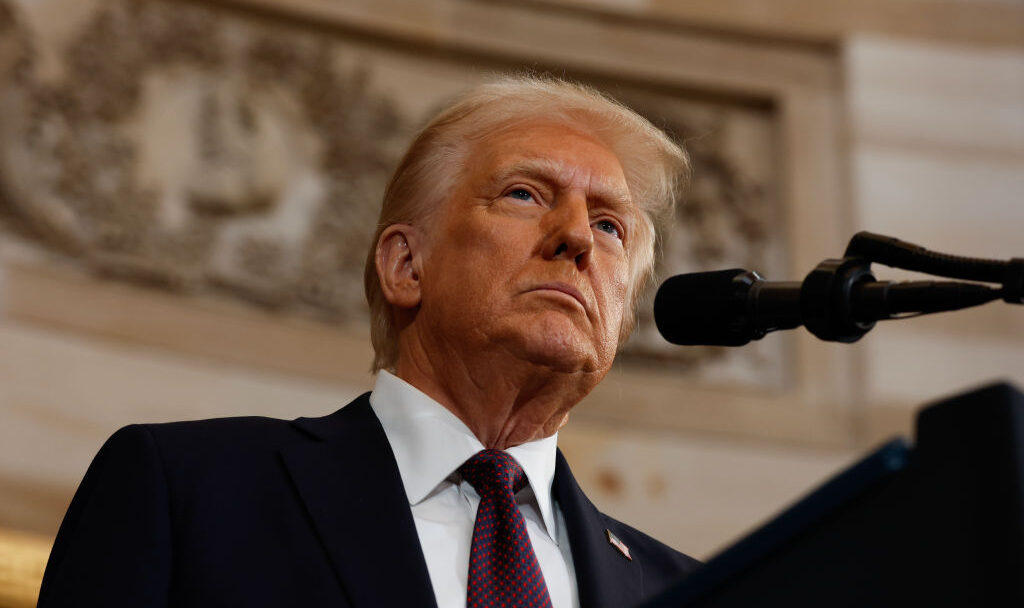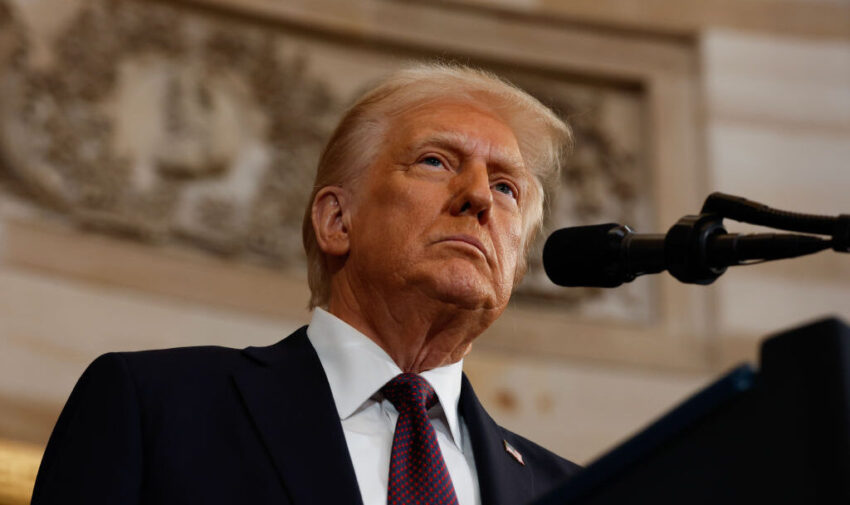Trump Gets Aggressive South of the Border
The use of force in Mexico and Venezuela would endanger security gains in the region.

The Trump administration appears to be taking a break from its efforts at peace-making diplomacy in the Old World to begin looking for trouble in the New. August has seen two major developments that are pushing the United States towards conflict in Latin America on a scale not seen since 1989: the development and authorization of military strikes against drug cartels in Mexico, and the deployment of American naval forces at the edge of Venezuelan territorial waters.
Most troubling are reports that Trump has signed a secret directive ordering the military to prepare plans for unilateral anti-cartel operations on Mexican soil. The independent journalist Ken Klippenstein recently uncovered that NORTHCOM is preparing “cartel-related ‘target packages’ for potential strikes and ‘direct action’ attacks on the ground against high-value individuals, compounds, and supply chain targets associated in particular with the Sinaloa Cartel and the Jalisco New Generation Cartel” for mid-September. These will most likely consist of drone strikes against cartel infrastructure—of the kind the U.S. has grown adept at employing in the Middle East—but could include the deployment of special operations forces as well.
The Mexican government has already firmly stated its opposition to the use of American military force against the cartels in its territory, and will not look kindly upon what it views as a severe violation of its sovereignty. As I wrote in January, the use of military force to degrade drug cartels is a difficult task under ideal conditions—as former president of Mexico Felipe Calderón discovered to his detriment during the Mexican drug war—and alienating the Mexican people is a fast track to losing the tools necessary for any permanent solution to organized crime south of the border:
The cartels are already deeply embedded in the social fabric of rural Mexico. They flourish in areas where state capacity and the rule of law is weak, where they can use the profits generated by the proceeds of organized crime to fund their quasi-state security apparatus, buy off local government officials and police forces, and provide handouts to the public to keep unrest low. A soft invasion of Mexico would be catastrophic for the only long-term solution to cartel violence: a Mexican government strong enough to maintain order and the regular function of government far outside of Mexico City.
If the U.S. was facing the drug crisis alone and military intervention was the only option available to confront it, such plans would be understandable. But Mexico’s President Claudia Sheinbaum has shown an extraordinary willingness to cooperate with American efforts to reduce cartel crime, deploying the National Guard to the border, significantly ramping up anti-cartel law enforcement operations, and taking the unprecedented step of extraditing cartel leaders in Mexican prisons to the U.S. for prosecution.
Just last month, Sheinbaum pushed through her new security plan, which is intended to significantly increase the efficacy of the National Guard and build out the state capacity to target cartels at their most vulnerable points. After the utter failure of the Mexican drug war and six years of effectively ignoring the cartels under the former President Andrés Manuel López Obrador’s “hugs not bullets” approach to organized crime, this is the best opportunity Mexico has had in decades of making durable progress on tamping down on its drug lords. Since the only real solution to the cartels—short of American occupation and military administration—is the good functioning of Mexican government, assisting with this transformation ought to be a high priority for the U.S.
Military intervention on Mexican soil not only risks destroying an unusually good U.S.–Mexico relationship at a critical moment in the country’s progress towards decartelization, but of actually legitimizing the cartels in the eyes of the Mexican public, who are extremely sensitive to perceptions of imperialism from their neighbor to the north. At the very least, it will end any ability the U.S. possesses at present to extract concessions from Sheinbaum.
The Trump administration also appears to be courting conflict with the Maduro government in Venezuela. The U.S. has designated the Venezuelan Cartel de los Soles and Tren de Aragua as terrorist organizations and named Maduro as their head as part of the administration’s anti-cartel strategy. In concert, the Justice Department recently seized over $700 million of assets believed to be held by Maduro abroad and doubled its bounty for information that would lead to his arrest to $50 million. Both actions, however, are relatively tame compared to the recent deployment of a significant body of naval forces to the edge of Venezuelan territorial waters.
The deployment includes three destroyers, at least one attack submarine, and elements of a U.S. Marine Corps Amphibious Ready Group, an unusually substantive force for the normally peaceful waters of the Caribbean. In response, Maduro has called out the Venezuelan national militia to “defend Venezuela’s territory, sovereignty, and peace” against potential American intervention.
While military intervention against Venezuela remains a remote possibility at this point, the White House has not ruled it out. “President Trump has been very clear and consistent, he’s prepared to use every element of American power to stop drugs from flooding into our country and to bring those responsible to justice,” White House Press Secretary Karoline Leavitt said. “It is the view of this administration [that Maduro] is not a legitimate president. He is a fugitive head of this cartel who has been indicted in the United States for trafficking drugs into the country.”
The post Trump Gets Aggressive South of the Border appeared first on The American Conservative.
Click this link for the original source of this article.
Author: Joseph Addington
This content is courtesy of, and owned and copyrighted by, http://www.theamericanconservative.com and its author. This content is made available by use of the public RSS feed offered by the host site and is used for educational purposes only. If you are the author or represent the host site and would like this content removed now and in the future, please contact USSANews.com using the email address in the Contact page found in the website menu.





